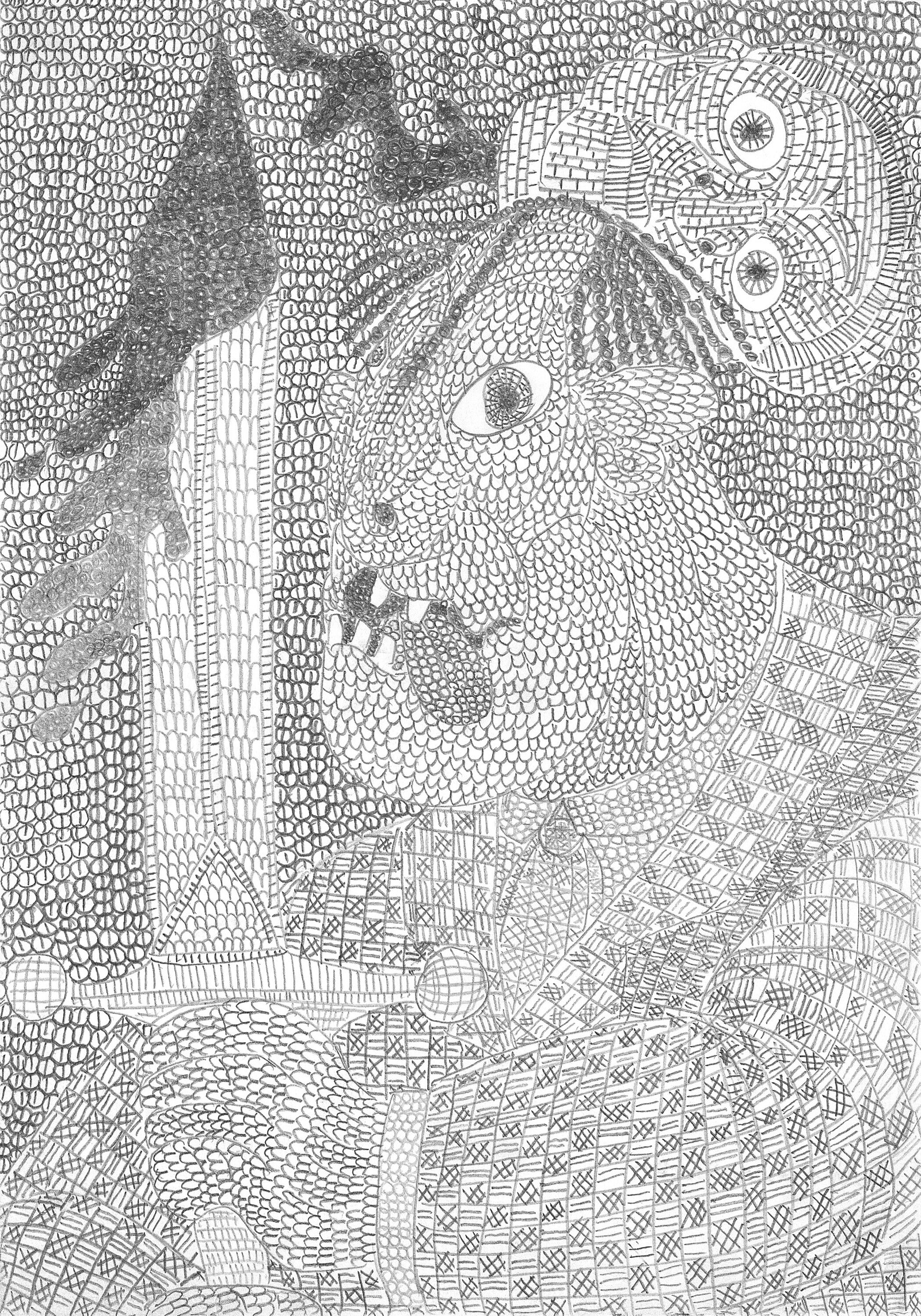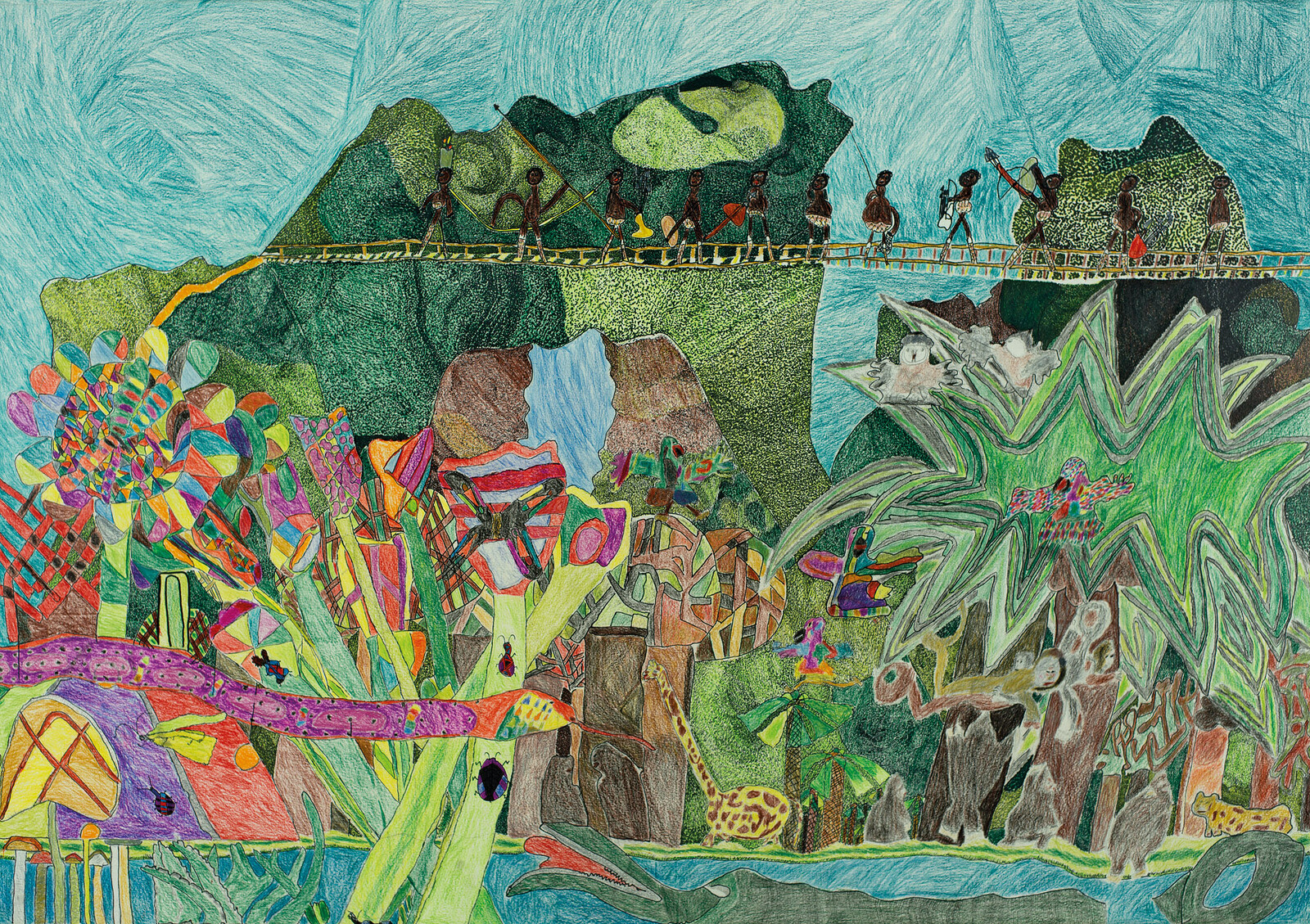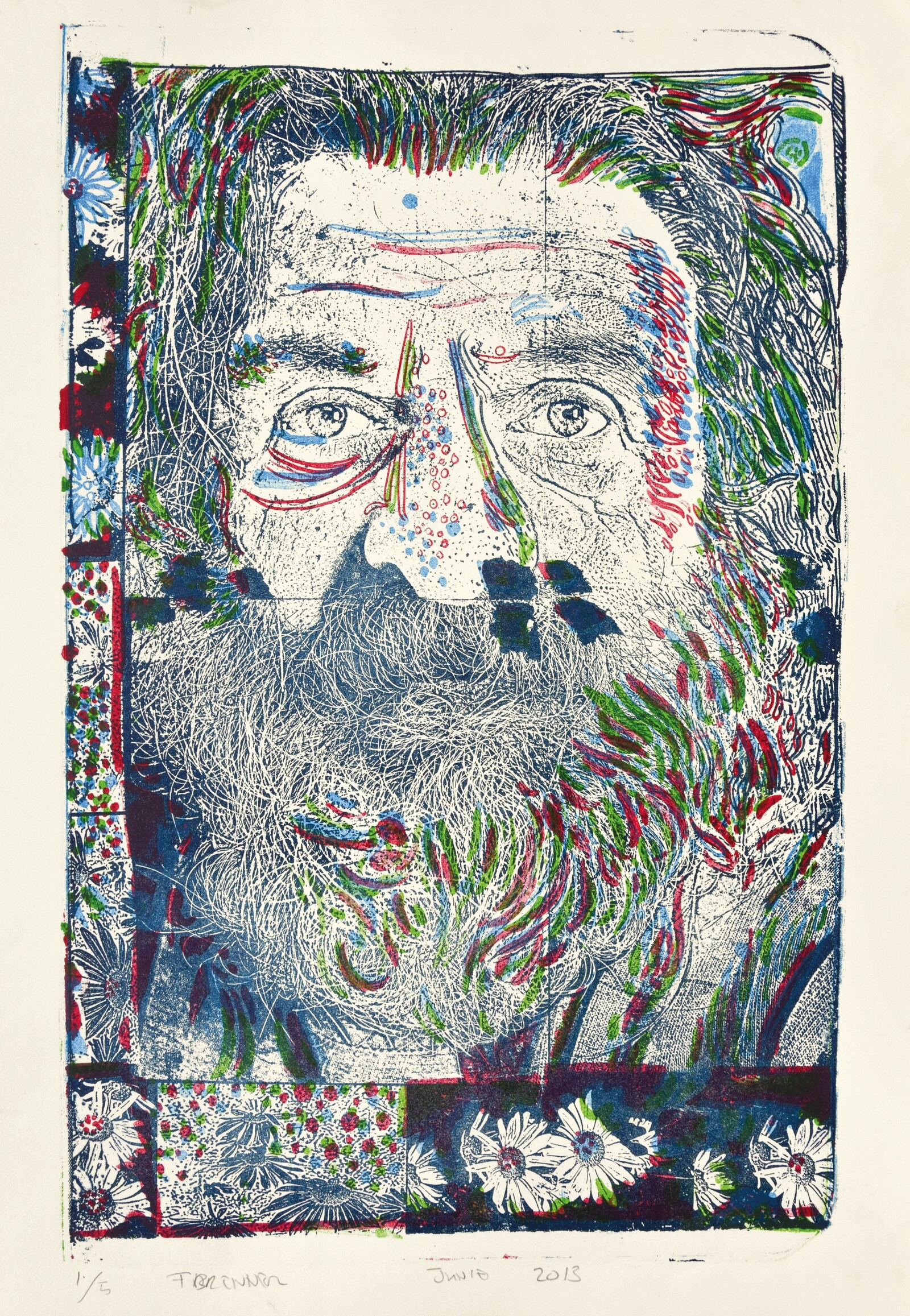euward8
April 30–June 27, 2021
Prinzregentenstrasse 1
80538 Munich
Germany
Hours: Wednesday–Monday 10am–8pm,
Thursday 10am–10pm
T +49 89 21127113
mail@hausderkunst.de
“Artistic work helps to free me from the vicious circle of inner rage, because it is liberating to let out the discomfort and anger on paper, and as I said, damaged teeth are very expensive, I must remember forever.”
—Andreas Maus, There are no exceptions, 1996
Felix Brenner, Andreas Maus and Kar Hang Mui are the winners of the euward8—European Award for Painting and Graphic Arts. The euward has been awarded by the Augustinum Foundation since 2000, to support artists in the context of intellectual disability gain visibility and recognition within the exhibition world. With its eighth edition, the euward will take place at Haus der Kunst for the fourth time. This year though, for the first time, the euward exhibition will be part of Haus der Kunst’s main artistic program, bringing the artists and their works to the foreground.
“Haus der Kunst is a museum without a collection, and as such, it may afford to take on the freedom to host different artists’ voices with generosity, and without placing them into labelled boxes, movements or categories,” says Andrea Lissoni, Artistic Director of Haus der Kunst. “The works of Felix Brenner, Andreas Maus and Kar Hang Mui evoke an idea of narrative and the presence of voice, that against discrimination past, present and future, and they reassert the need to break out from classifications and essentialisms. Instead, they propose creative forms of existence, resistance and freedom of expression. In a word, they propose transformation.”
Felix Brenner (b. 1955, Basel, Switzerland) first experienced the expansion of his self-perception through psychoactive drugs. In the wake of this formative existential experience, Brenner has become artistically active and developed diverse areas of interest; he deals with plants that contain hallucinogenic substances, for example, both ethnobotanically and in drawings. Brenner explores the question of his own identity and its mutability in his self-portraits. For this set of works, he employs a variety of techniques, ranging from pencil drawing, to ink and watercolor, to lithography. Brenner presents the self-portraits sheet by sheet, so that several rows fill the wall like a tableau. He looks with documentary intent at himself as the main actor.
The books of Andreas Maus (b. 1964, Cologne, Germany) are part notebook, part diary, part artist’s book. Maus fills the pages of these books to the edge. He himself speaks of the release of inner rage through drawing. The movements join together to form two-dimensional patterns from the basic, repeated forms of line, semicircle, circle and square. The ballpoint pen drawings tell of historical events that include bombings, electric shocks for immobilizing patients, torture, and beatings in German state hospitals since World War II, as well as of encompassing historical figures from Anne Frank to Pina Bausch, and media or sporting events like the Olympic Games. In his text Es gibt keine Ausnahmen (There are no exceptions), 1996, Maus addresses with great directness the tense development of an inclusive society in Germany, without excluding his own person from criticism. He formulates the moral goal of exemplary behavior not only for dealing with people with disabilities, but also in areas like athletics and his own actions as an artist.
Kar Hang Mui (b. 1989, Goes, Netherlands) is the child of migrants from Hong Kong to the Netherlands and later traveled himself to Hong Kong several times. The characteristic skyline of this city lies on the horizon of many of his colored pencil drawings. Likewise, the contiguous colorful areas that fill the fore and middle ground bring to mind fields of agriculture and the low thatched houses of the Netherlands. Architectural elements are embedded like fragments of a cultural landscape: ponds, parks, and temple roofs. Mui’s colored pencil drawings reflect the intensity of sensory and landscape impressions. Only gradually, and with the possibility of his own working space, did an understanding of the work emerge, and Kar Hang Mui became accustomed to achieving completed works.
In addition to the award winners, the following artists were nominated: Aljoscha, Matthew Beadon, Rudolf Bodmeier, Torsten Holzapfel, Elizaveta Khudyakova, Tongtad Mahasuwan, Cameron Morgan, Daniel Nesensohn, Stefan Riedmann, Jens Rosenkilde, Martin Schindler, Alexandre Vigneron and Raphael Waldis.
The exhibition is curated by Klaus Mecherlein, Augustinum Foundation, and Sabine Brantl, Haus der Kunst.
The digital exhibition opening and the award ceremony will be streamed live on April 29, 2021 at 6pm (CET): www.euward.de/en/live




